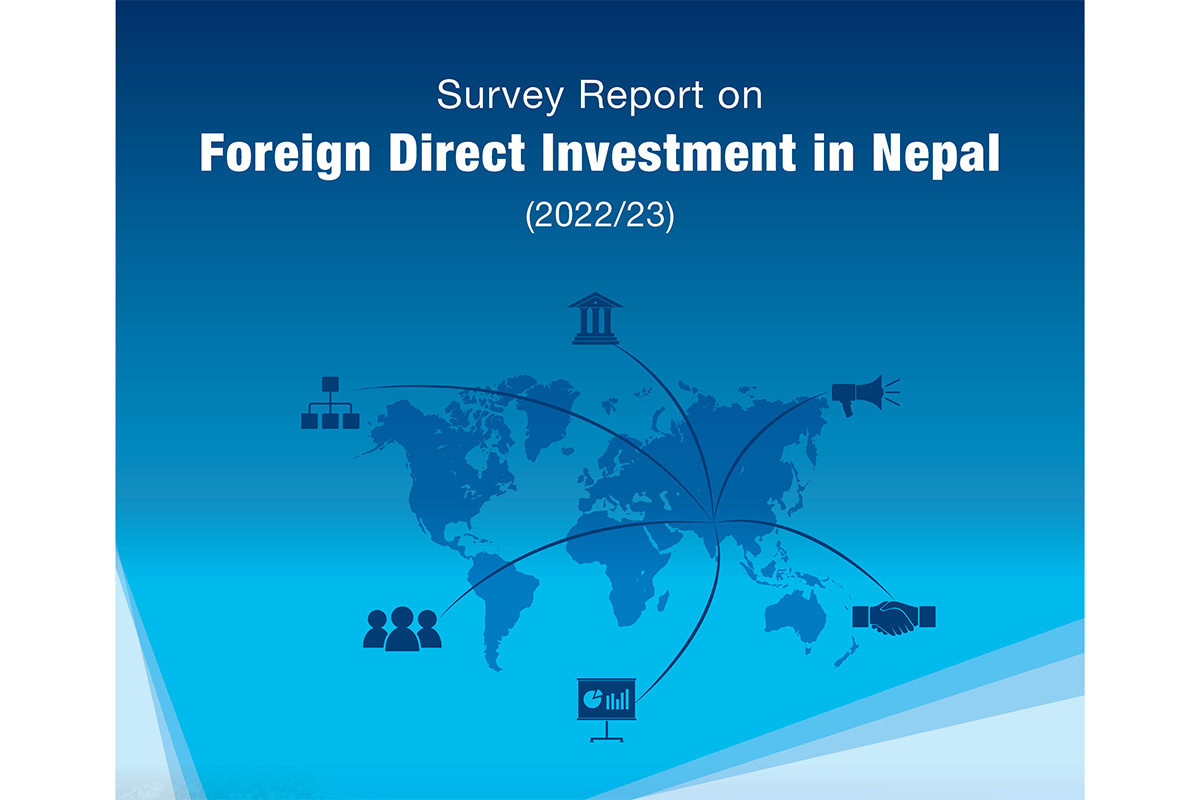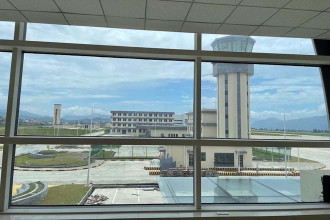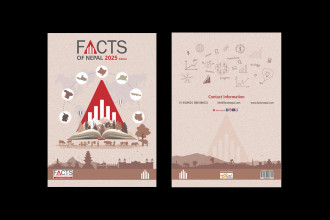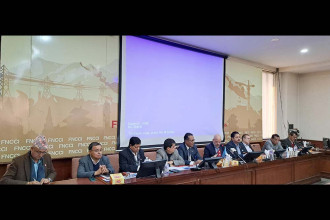
KATHMANDU: Nepal Rastra Bank (NRB) has published the Survey Report on Foreign Direct Investment (FDI) in Nepal for the fiscal year 2022/23.
The report reveals that the stock of FDI in Nepal surged by 11.8%, reaching Rs 295.50 billion by the end of fiscal year 2022/23. Paid-up capital remains the largest component, constituting 52.8% of the total FDI stock, while reserves and loans account for 33.7% and 13.5% respectively.
The electricity, gas, steam, and air conditioning sector leads with 30% of the total FDI stock, followed closely by the manufacturing sector at 29.4%. Together, these sectors form the industrial sector, which comprises 59.7% of the total FDI stock.
The service sector accounts for 40.2% of the total FDI stock. Within this sector, financial and insurance services make up 26%, information and communication 6.7%, and accommodation and food services 6.3%.
As of mid-July 2023, Nepal has attracted foreign investment from 58 countries. India tops the list with Rs 103.5 billion in FDI stock, followed by China (Rs 35.5 billion), Ireland (Rs 22.6 billion), Australia (Rs 19.1 billion), and Singapore (Rs 18.8 billion).
Outstanding foreign loans of FDI enterprises, excluding direct loans from foreign direct investors, stood at Rs 60.3 billion as of mid-July 2023. The hydropower sector has utilised the most foreign loans, with an outstanding amount of Rs 29.3 billion.
The capacity utilisation of surveyed FDI enterprises in manufacturing is 60.69%, while their profitability stands at 11.61% for 2022/23.
The survey, conducted primarily through structured questionnaires, included responses from 238 out of 754 active enterprises that had obtained FDI approvals from NRB by 2022/23. The data on FDI stock was supplemented by information from the financial statements of the surveyed enterprises. The FDI stock was valued based on the company's shareholder equity, debt, and payables (excluding trade credits) from foreign direct investors.
NRB states that the survey aims to disseminate the status of FDI in Nepal to all stakeholders. The report provides trends and breakdowns of FDI stock by sector and country, offering valuable insights for policymakers to assess the current situation, formulate policies, and implement reforms.
FDI inflows are crucial for job creation, human capital development, export growth, and overall economic growth. Nepal has been focusing on attracting foreign investment since its sixth plan in the fiscal year 1980/81, with significant reforms and frameworks established to govern FDI.
The central bank conducts annual surveys among FDI enterprises to update and compile Nepal's FDI stock by counterpart economies and economic activities. These surveys also contribute to the compilation of Nepal's International Investment Position (IIP) statement.






